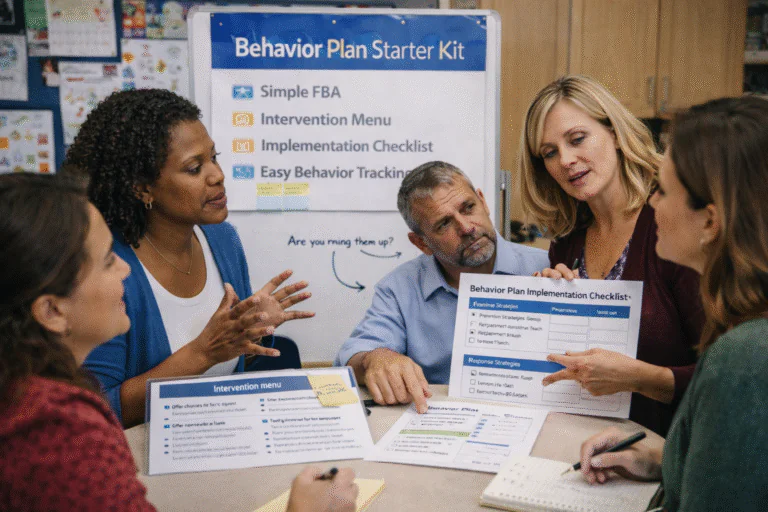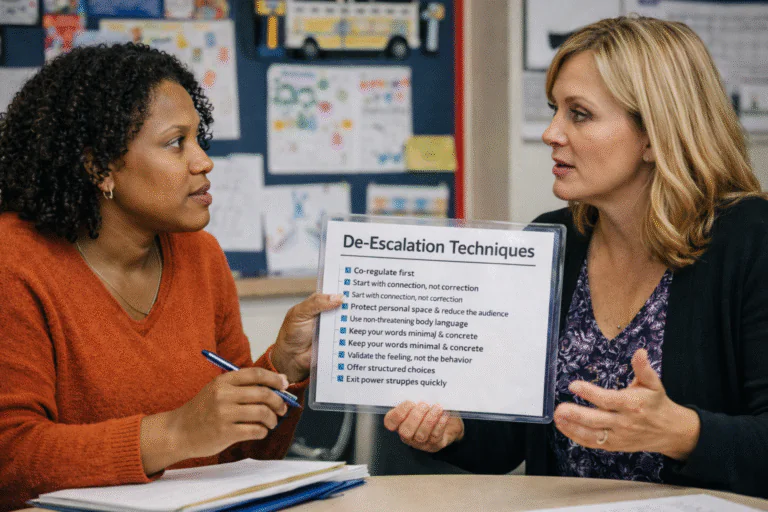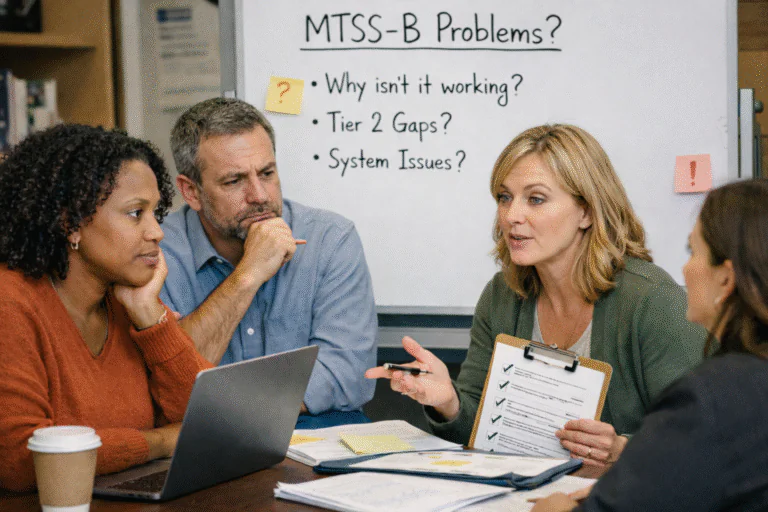Supporting student behavior in schools is no longer just about managing disruptions or applying consequences after challenges arise. Today’s educators recognize that behavior support is about teaching new skills, fostering positive environments, and ensuring all students can access learning. Within public K–12 education, two of the most common roles dedicated to this work are Behavior Coaches and Behavior Specialists.
At first glance, the titles can sound interchangeable. Both are focused on supporting students with behavior challenges, both partner with teachers and staff, and both are rooted in the science of Applied Behavior Analysis (ABA)—using data and evidence-based practices to understand and improve behavior. However, there are important distinctions in their qualifications, responsibilities, and levels of work.
This article will unpack those differences while also highlighting the shared mission of these two roles: helping students succeed academically and socially by teaching appropriate replacement behaviors, reducing barriers to learning, and supporting staff in implementing effective, functional strategies.
It’s important to note upfront that job titles, qualifications, and responsibilities vary across districts. What one school system calls a Behavior Coach, another may title Behavior Interventionist. What is labeled a Behavior Specialist in one district may require certification as a Board Certified Behavior Analyst (BCBA), while in another district it may be filled by a school psychologist with strong training in behavior. The descriptions below represent general patterns across public K–12 education, not rigid definitions.
Shared Foundations: ABA and Functional Perspectives of Behavior
Before diving into the distinctions, it’s worth recognizing what these roles have in common. Both Behavior Coaches and Behavior Specialists draw from the principles of Applied Behavior Analysis (ABA)—the science of understanding behavior and how it is shaped by context.
In schools, this means that instead of asking, “How do we stop this misbehavior?”, the focus shifts to:
- What function does this behavior serve for the student?
- What environmental factors are influencing it?
- What replacement skills can we teach to help the student succeed?
Whether it’s a student calling out in class, shutting down when given challenging work, or engaging in unsafe behavior in the hallways, both coaches and specialists look at the “why” behind behavior. They help staff move from a reactive stance (punishment, exclusion) to a proactive, skill-building approach—teaching coping strategies, reinforcing positive behaviors, and creating classroom systems that prevent escalation.
In this way, both roles are not simply about reducing disruptive behavior; they are about building student capacity to engage with learning.
The Role of the Behavior Coach
Qualifications and Background
Behavior Coach positions in public K–12 schools often require a teaching credential, particularly in special education or a closely related field. This is because coaches work side by side with classroom teachers and must understand instruction, pedagogy, and the realities of classroom management.
Some districts do hire coaches without certification—such as experienced paraprofessionals or intervention specialists—but often, certified teachers fill these roles. Additional training in PBIS (Positive Behavioral Interventions and Supports), trauma-informed practices, and classroom management strategies is common.
Unlike Behavior Specialists, Behavior Coaches are typically not required to be BCBAs or hold advanced behavior analysis credentials. Their expertise is rooted in instructional practice and applied strategies rather than formal assessment and plan design.
Responsibilities
Behavior Coaches are the frontline implementers and trainers within classrooms. Their responsibilities often include:
- Modeling strategies for teachers and staff—demonstrating how to implement reinforcement systems, proactive classroom routines, or de-escalation techniques.
- Providing direct support to students, such as facilitating Check-In Check-Out (CICO), running social skills groups, or supporting transitions.
- Coaching staff in real time, helping teachers respond consistently to behavior challenges and reinforcing effective practices.
- Supporting Tier 1 and Tier 2 interventions, focusing on classroom management, preventive supports, and early-stage interventions before behavior escalates to requiring intensive plans.
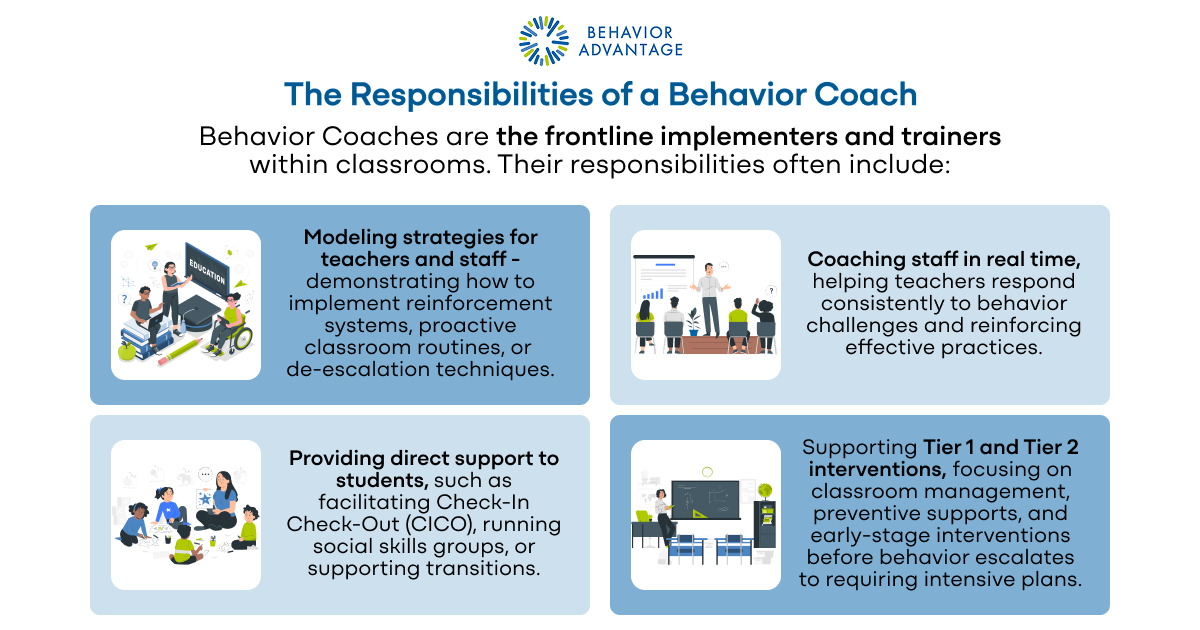
Core Role
A Behavior Coach is best described as an instructional partner and classroom support. They work in the moment, shoulder-to-shoulder with teachers and paraprofessionals, making sure strategies are not just written on paper but are actually happening consistently.
Their greatest strength is building staff confidence through modeling—showing, not just telling, what effective practice looks like.
The Role of the Behavior Specialist
Qualifications and Background
Behavior Specialist positions, in contrast, typically require a higher level of training and certification. Many Behavior Specialists are Board Certified Behavior Analysts (BCBAs), while others may be school psychologists or special educators with advanced behavior training.
At minimum, these roles usually require:
- A bachelor’s or master’s degree in Applied Behavior Analysis, Psychology, Special Education, or a related field.
- Fieldwork and supervised experience in behavior analysis.
- In many states, licensure as a behavior analyst in addition to national certification.
Because Behavior Specialists design, oversee, and ensure compliance of interventions, districts typically seek candidates with advanced expertise in assessment, data analysis, and IDEA requirements.
Responsibilities
Behavior Specialists serve as the designers and systems consultants for student behavior supports. Their responsibilities include:
- Conducting Functional Behavior Assessments (FBAs) to determine the root causes and functions of behavior.
- Developing Behavior Intervention Plans (BIPs) or Positive Behavior Support Plans (PBSPs) that align with IDEA requirements.
- Ensuring plans are data-driven, individualized, and legally compliant.
- Training and supporting staff through professional development, workshops, and consultation.
- Collaborating with IEP teams, administrators, related service providers, and families to align behavioral supports with academic and developmental goals.
- Supporting manifestation determination reviews (MDRs) when disciplinary removals occur, ensuring equitable outcomes for students with disabilities.
- Promoting a trauma-informed, culturally responsive lens in behavior planning.
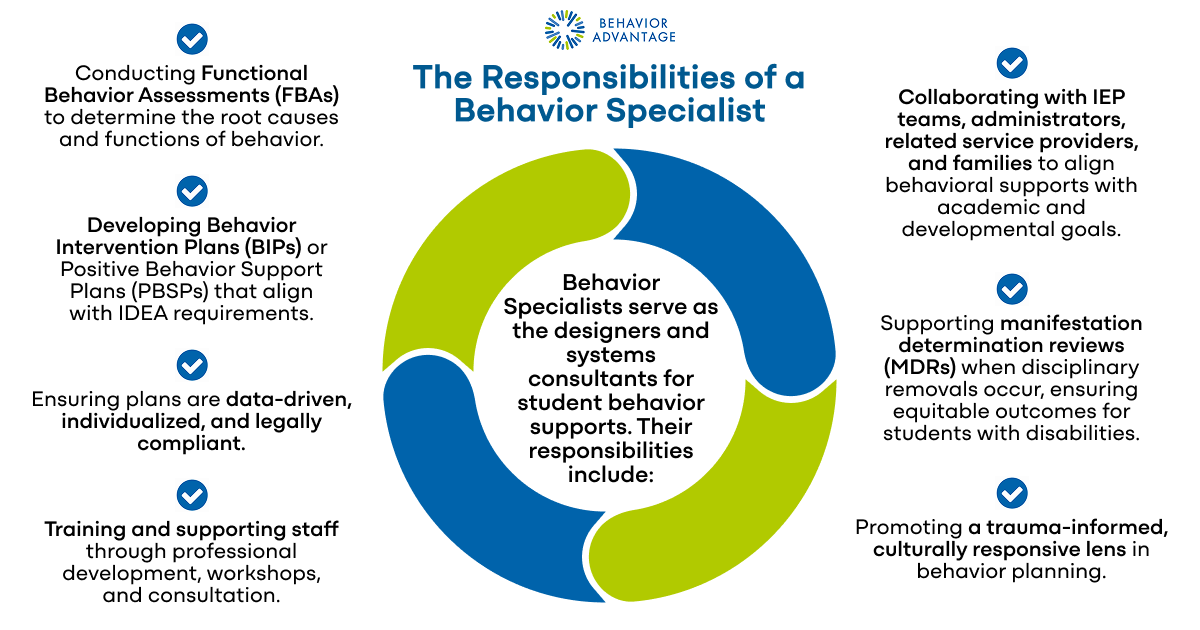
Core Role
A Behavior Specialist is best described as a clinical expert and systems-level consultant. They bridge the science of behavior analysis with the realities of school implementation, ensuring that interventions are effective, legally sound, and sustainable.
While they collaborate with teachers and teams to provide training, modeling, or occasional classroom support, their primary responsibility is typically assessment, plan development, and oversight—helping schools shift from reactive discipline to proactive, skill-building supports.”
Side-by-Side Comparison
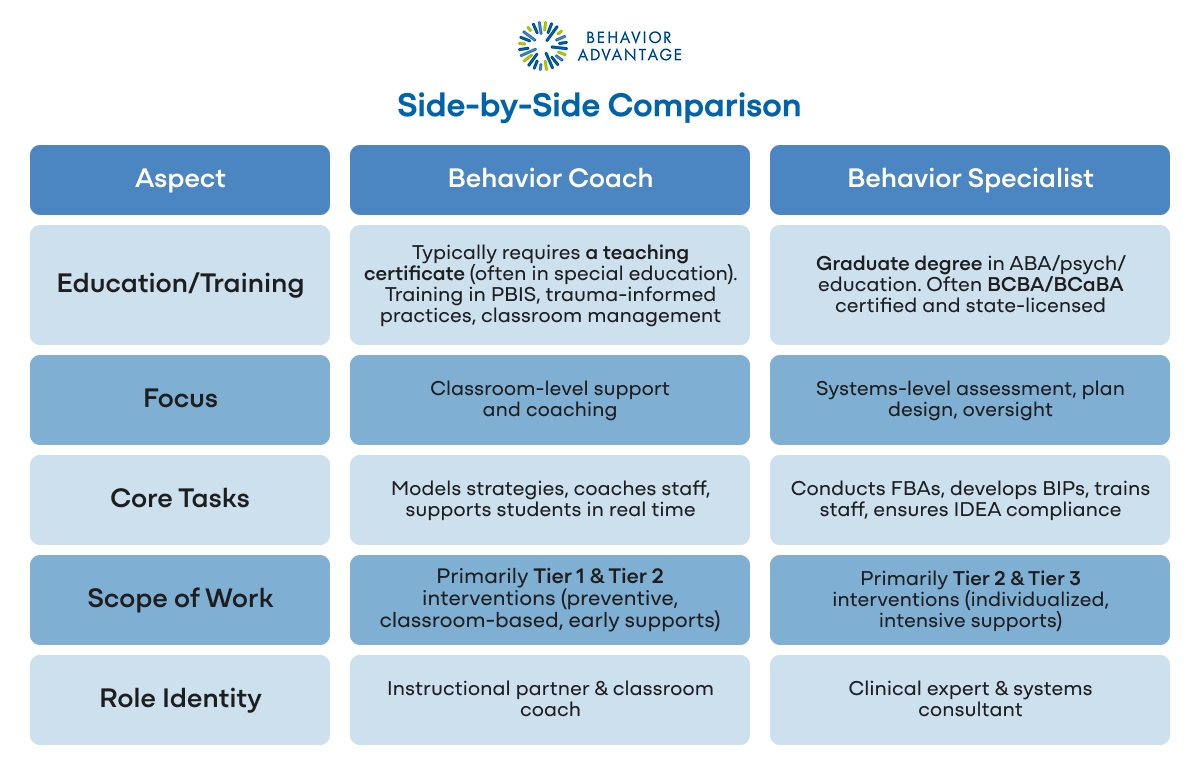
Variability Across Districts
While the distinctions exist between Behavior Coaches and Behavior Specialists, the exact use of these positions depends heavily on the district. Some districts employ Behavior Coaches as instructional partners who support teachers day to day. Others instead choose to staff Behavior Specialists who provide higher-level assessment and plan development.
It appears to be less common for both roles to exist side by side in the same school system. More often, a district will choose one approach over the other, depending on factors such as:
- District size and resources
- Availability of certified staff (teachers, BCBAs, school psychologists)
- Emphasis on instructional coaching vs. clinical assessment
- Student population needs (for example, prevalence of intensive Tier 3 supports vs. broad classroom management challenges)
Because of these variations, job descriptions often blur or overlap. A role titled Behavior Coach in one district may look nearly identical to a Behavior Specialist in another. Likewise, some Behavior Specialist postings require BCBA certification, while others may be filled by a credentialed special educator with strong behavior training.
Conclusion: Two Roles, One Mission
The roles of Behavior Coach and Behavior Specialist may differ in qualifications, responsibilities, and scope, but they share the same foundation:
- Rooted in Applied Behavior Analysis
- Guided by a functional perspective of behavior
- Focused on teaching replacement skills, not just reducing problem behaviors
- Dedicated to ensuring students can access learning and thrive in school
And while the specific titles, qualifications, and expectations vary by district, the underlying mission remains the same: to help every student succeed by understanding behavior, addressing its function, and building the skills they need for lifelong learning and growth. Equally important, these roles focus on building the capacity and confidence of teachers and classroom staff—empowering them with practical strategies to directly address behavior and meet student needs with consistency and effectiveness.
For a deeper look at one of these roles, see our blog What Does a Behavior Specialist Do?. And to explore resources, templates, and practical tools for functional, school-based behavior supports, explore our website or




